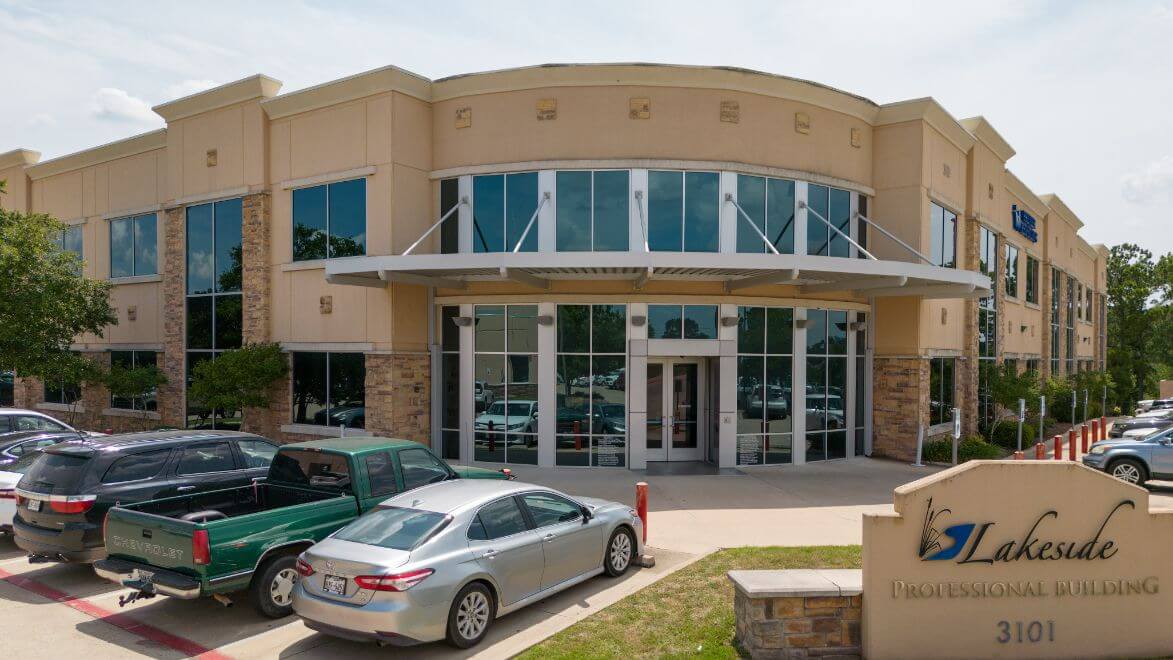Are You at Risk for Skin Cancer? Top 7 Factors That Could Increase Your Need for a Screening
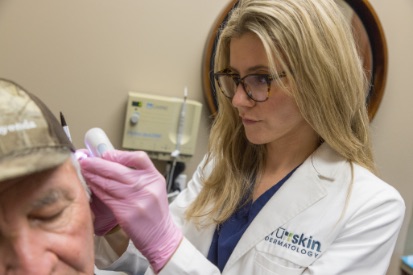 Skin cancer is the most common type of cancer in the United States, with millions of individuals affected by some form of skin cancer around the globe each year. Even if you take precautions and do not have a family history of skin cancer, it's essential to know which lifestyle factors may increase your likelihood of developing skin cancer, especially with age.
Skin cancer is the most common type of cancer in the United States, with millions of individuals affected by some form of skin cancer around the globe each year. Even if you take precautions and do not have a family history of skin cancer, it's essential to know which lifestyle factors may increase your likelihood of developing skin cancer, especially with age. Tru Skin Dermatology specializes in providing TBSE, or Total Body Skin Exams. Comprehensive skin examinations can help assess lesions and abnormal or suspicious growths to prevent a potentially life-threatening diagnosis.
1. Outdoor Lifestyles and Excessive Sun Exposure
Spending plenty of time in the sun can significantly increase your risk of developing several forms of skin cancer, including squamous cell carcinoma, basal cell carcinoma, and even melanoma.
A few tips to remember any time you're heading outdoors include:
Protective Clothing: Wear protective clothing and gear anytime you plan to spend extended time in the sun. From sunhats to autoimmune-specific clothing (that doubles as a layer of UV protection), there are many options on the market to suit any way of life.
Sunscreen: Always apply sunscreen with an SPF of at least 30 whenever you're outdoors. Reapply your sunscreen at least every two hours or 120 minutes.
2. Genetics
A family history of skin cancer is a definitive sign that skin cancer screenings and total body exams are vital, especially into adulthood and as you age. Genetic factors can play a major role in the development of various skin cancers, especially when it comes to melanoma.
3. History of Skin Cancer
Anyone with a history of skin cancer has a greater risk of experiencing a recurrence of skin cancer in the future. Routine screenings can significantly reduce the risk of a recurrence, particularly after surviving a diagnosis of melanoma.
4. Autoimmune Conditions or a Weakened Immune System
Individuals with weaker immune systems or certain autoimmune conditions also have a higher risk of developing skin cancer. Those who have recently undergone an organ transplant, chemotherapy, or those who have HIV/AIDS are also at a much greater risk of skin cancer, often due to the body's inability to repair skin from sun damage or UV ray damage properly.
5. Fair Skin
If you have naturally fair skin, taking extra precautions is always recommended when spending time outdoors or in the sun. Lighter skin tones are more vulnerable to skin cancer due to less melanin, a natural UV radiation protectant.
6. History of Sunburns
A history of excessive sunburns, particularly during childhood or adolescence, can significantly elevate the risk of developing skin cancer later in life. Sunburns cause direct damage to the DNA in your skin cells, leading to mutations that, over time, can result in cancerous growths. The skin is more vulnerable to UV radiation during early life stages, and repeated overexposure can compound the damage. This increased risk is particularly linked to the development of melanoma, the most dangerous form of skin cancer, as well as basal and squamous cell carcinomas.
Even if these sunburns occurred decades ago, the damage may manifest in adulthood, highlighting the importance of skin cancer screenings for those with a history of frequent or severe sunburns. While preventing future sunburns through protective measures like sunscreen and clothing can help, individuals with such a history should remain vigilant about changes in their skin and consider regular total body skin exams to catch any early signs of cancer.
7. Excessive Moles
Having several atypical or abnormally shaped moles around your body can put you at a greater risk of skin cancer, particularly melanoma. Seeing a dermatologist for a routine skin check can ensure any moles you've discovered are benign and non-cancerous, regardless of their shape and size.
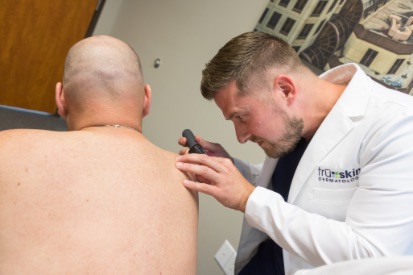
Trusted for Skin Cancer Diagnosis & Treatment
Skincare and self-checks are vital to preventative care and reducing your risk of developing any type of skin cancer. If you're interested in a TBSE or a Total Body Skin Exam due to your outdoor lifestyle, history of skin cancer, or even your fair skin, we're here to help. Schedule an appointment with Tru Skin Dermatology today.
Featured Sunscreens

EltaMD UV Clear SPF 46 original
Oil-free EltaMD UV Clear helps calm and protect sensitive skin types prone to discoloration and breakouts associated to acne and rosacea. It contains niacinamide (vitamin B3), hyaluronic acid and lactic acid, ingredients that promote the appearance of healthy-looking skin. Very lightweight and silky, it may be worn with makeup or alone. Choose from tinted and untinted formulas for use every day. 1.7 oz / 48 g

EltaMD UV Lip Balm SPF 36
This creamy, long-lasting moisturizing sunscreen soothes and protects dry, chapped and sun-exposed lips. EltaMD UV Lip Balm contains 5% Hydromanil™ for immediate and long-term moisturization. Powerful UV protection and a super hydrating power make UV Lip Balm the ideal protector for all skin types and lifestyles.
Related Blogs
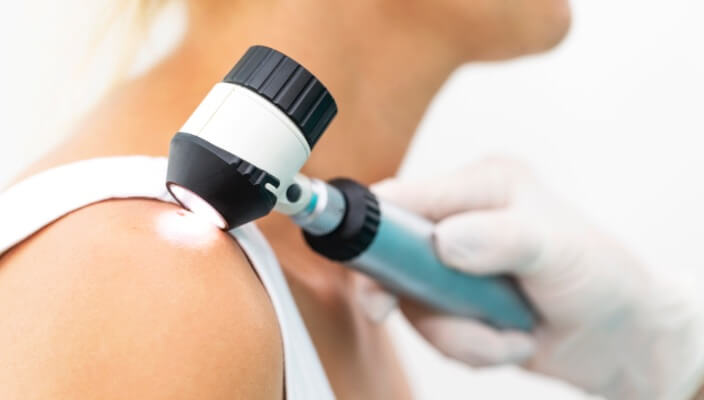
- Skin Cancer
Image-guided superficial radiation therapy (IG-SRT) is a non-surgical treatment option for non-melanoma skin cancers. Learn about this treatment offered at Tru-Skin Dermatology.
Read More
- Skin Cancer
- Skin Exams
Skin cancer remains a critical public health issue across the globe, and Texas, with its vast landscapes and relentless sunshine, is no exception.
Read More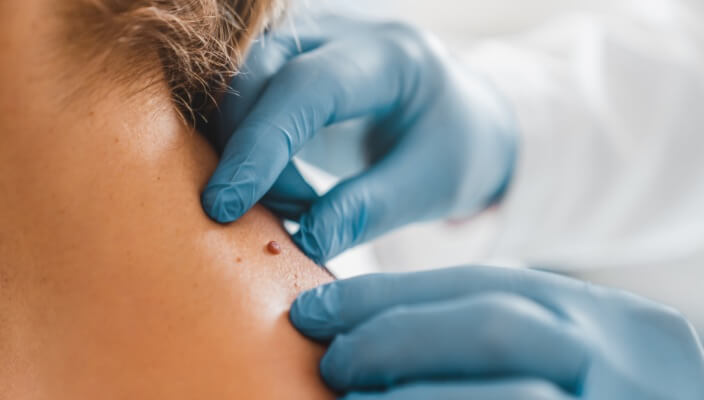
- Skin Cancer
- Skin Exams
- Sun Safety
Discover the importance of full body skin cancer screenings, especially for Texans with high sun exposure. Learn what to expect during your screening at Tru-Skin Dermatology in Austin, TX, and take control of your skin health.
Read More


